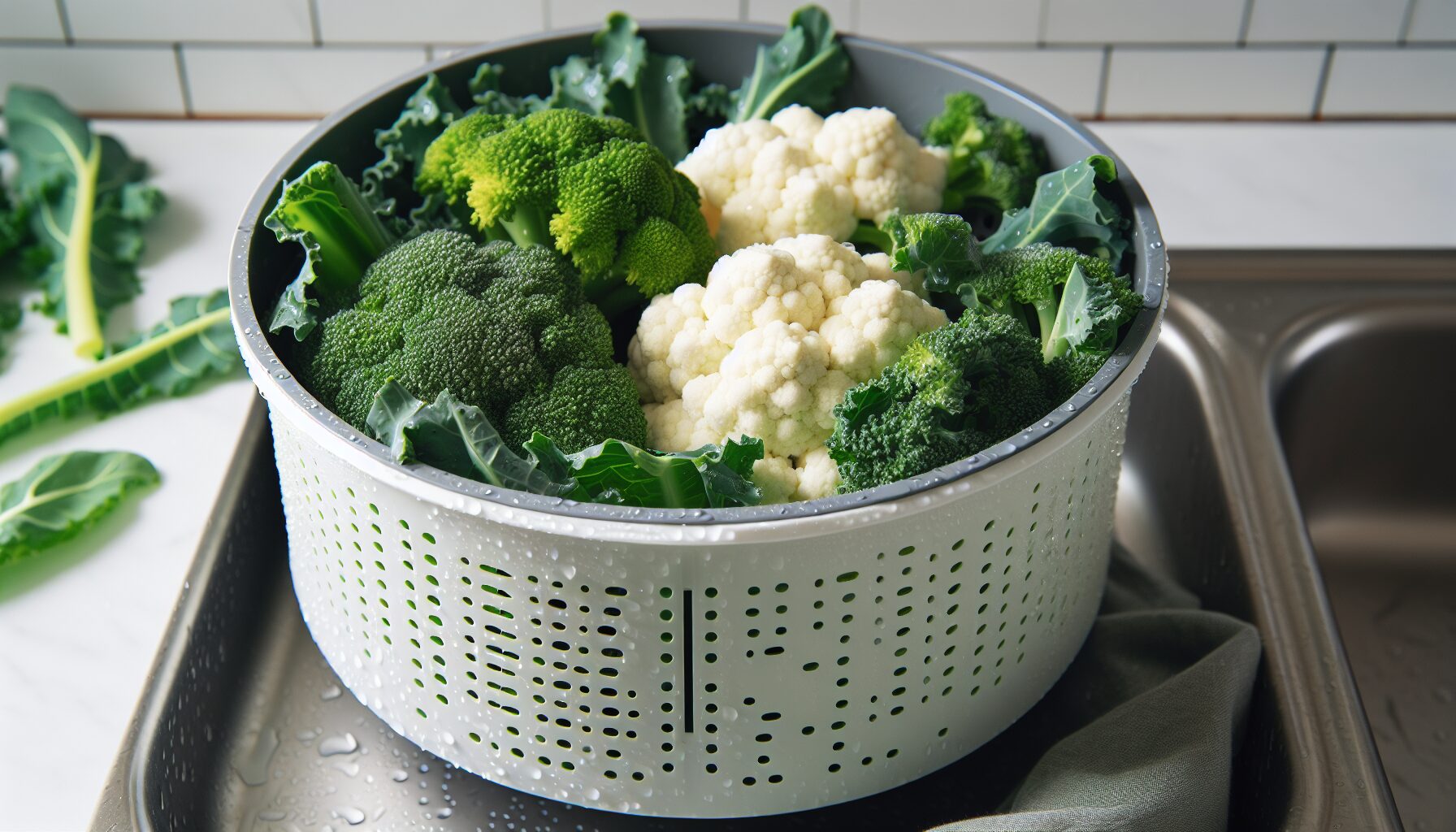
Sulforaphane Health Benefits
You may have heard of sulforaphane and its potential health benefits, including preventative effects against cancer. In recent years, there have been more and more studies revealing the possible benefits of this molecule on our health. Wellness enthusiasts have got really excited about the potential that this compound has on the body.
Many studies are in their infancy but research looks really promising for many different applications. We will have a look at these in detail here.
Sulforaphane
Much of the wellness hype about potential health benefits of sulforaphane has been about broccoli sprouts, or young broccoli florets. However, sulforaphane is found in matured broccoli too. Sulforaphane has been isolated in large amounts in broccoli, cabbage, cauliflower and kale. These are all cruciferous vegetables. Sulforaphane is a glucosinolate and as the name suggests it is an organosulfur compound found in plants.
Broccoli has always been recognised as having impressive abilities to reduce risk of bladder cancer and colon cancer. However, only recently has sulforaphane been identified as having potential in cancer prevention. Originally, sulforaphane was isolated as an antibiotic.
Sulforaphane seems to be a strong antioxidant, with researched impacts on the prevention of breast, prostate, lung and skin cancers. It may also be able to protect neurones and the heart from specific diseases.

Sulforaphane As An Antioxidant
Sulforaphane has generated particular interest as an antioxidant, or antioxidant enhancing molecule within the body. This property is where this plant molecule is thought to obtain a lot of its health benefits from.
A lot of early indicators are showing good promise for the progression of sulforaphane use, especially as a protective compound or antioxidant. For example, a very basic study involving UV damage prevention showed sulforaphane might be able to protect the skin from sun damage. For this reason, sulforaphane may eventually be integrated into some anti-aging cosmetic products. This would be an exciting health benefit for the wellness community.
Sulforaphane might also be able to encourage normal hair growth, through removing regulatory blocks on hair growth. This might well occur through oxidative stress signalling changes that happen when cells are higher in antioxidants. In the liver, noticeable changes in oxidative stress were seen with glucoraphanin supplementation. Glucoraphanin is the pre-cursor molecule that becomes sulforaphane. It is important to note that in the intestinal tract bacteria can convert glucoraphanin to sulforaphane.
Some other antioxidant enhancing, or direct antioxidant actions, include how sulforaphane scavenges hydrogen peroxide, while also protecting delicate vascular cells from injuries. These are all encouraging signs that sulforaphane has potent antioxidant or protective effects in the body. Some of the newly researched health benefits of sulforaphane include immunomodulation, where sulforaphane can alleviate chronic inflammation through targeting macrophages. Many potent antioxidants are good at conserving cell parts, or structures, that are really vulnerable to extreme radical damage.
Sulforaphane is protective against toxic substance exposure, for example toxic heavy metals or BPA, reducing oxidative stress and improving overall antioxidant status in the body. As an antioxidant sulforaphane seems to be quite impressive, having potential health benefits throughout the body.

Research On Sulforaphane & Cancer
In liver cancer cells, sulforaphane prevented the growth of the cancer cells. While in preliminary breast cancer research, its pre-cursor glucoraphanin might be able to limit cancer cell growth. Because of how novel sulforaphane is, a lot of cancer studies are in their infancy.
Another study showed that certain essential tumour suppressing genes were active with sulforaphane use, meaning that it may one day form part of a supporting cancer therapy. A lot of research is showing that sulforaphane seems to jolt potential cancer cell signalling pathways back to their natural states in local tissues, including through controlled cell death.
Sulforaphane might also have apoptotic action that controls cancer cell progression. These actions seem to reduce both the size and survival rate of tumours. Again, there is a lot of good evidence here for the progression of sulforaphane use, particularly in relation to potential cancer treatment.
Sulforaphane & Brain Health Protection
Another potential health benefit of sulforaphane is the conservation of optimal brain health. This molecule is likely to have neuroprotective functions through specific antioxidant defence activation. This effect has also been observed in patients requiring mild brain recovery, where cognition was mildly improved after sulforaphane use.
Interestingly, sulforaphane might encourage better blood brain barrier integrity through supressing oxidative stress. The blood brain barrier is important for maintaining brain integrity and optimal health. It prevents harmful compounds from directly entering the brain.
More preliminary studies have identified how sulforaphane might protect against age related neurone cell inflammation and oxidative stresses. These neuroprotective health effects might also extend to the management of Alzheimer’s disease. Sulforaphane also shows injury recovery promoting effects in the lungs through the induction of antioxidant responses.
This is quite an exciting pattern of antioxidative effects with acute injuries to delicate body tissues. It is no surprise that sulforaphane has generated hype in the wellness sector. Studies so far in brain health indicate that dietary sulforaphane has low toxicity.
One mode of action for some of the neural effects may be in the protection of mitochondrial energy production, as these protective effects have been noticed in the brain.

Sulforaphane Heart Health Benefits
This incredible compound also may be able to protect cells of the heart from oxygen starvation injuries. There is research evidence to show that sulforaphane may have health benefits to the hearth through protecting the heart from inflammation.
Sulforaphane might also be able to protect certain blood vessels from atherosclerotic plaque build-up. This might be because of lipid lowering effects, combined with high powered antioxidant action.
Sulforaphane has also generated interested from researchers into obesity because of these lipid lowering effects, with sulforaphane indirectly though to regulate fat accumulation. Another research interest is diabetes, where sulforaphane might be able to reduce insulin resistance. This is another risk factor for people who are obese.

Conclusion
Sulforaphane is generating a lot of excitement in the wellness community and with researchers due to early research into its effects on cancer cell growth.
This plant compound, found in vegetables such as broccoli and cauliflower, may be able to supress the growth of cancer cells. This might happen through apoptosis, genetic and or antioxidant actions. One day extracts might form a complimentary therapy to help treat different kinds of cancers.
Sulforaphane has been clearly shown to possess powerful antioxidant powers. It seems to be able to reduce oxidative stress in the liver and protect skin cells from UV damage. These antioxidant effects on the body seem to extend into brain health, with sulforaphane being though to have neuroprotective effects. Sulforaphane might be useful in Alzheimer’s prevention, while early studies indicate that it might protect nerve cells through preserving mitochondrial energy production.
Lipid levels were seen to be lowered with sulforaphane use and this effect, together with its antioxidant powers, is considered to be able to prevent plaque from building up in blood vessels. Sulforaphane may help to prevent insulin resistance and fat accumulation, which could potentially help to prevent diabetes.
A lot of this research is quite exciting and sulforaphane may end up being a complimentary cancer drug or recognised as a cancer preventative agent.
For more interesting articles, navigate to our main articles page.





